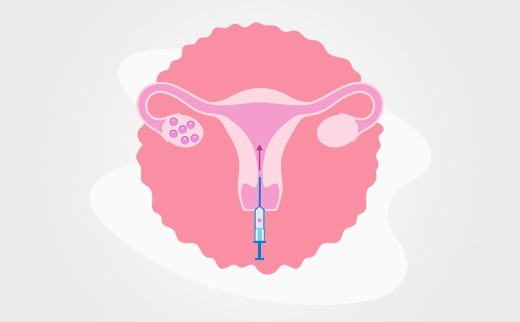
Embryo transfer is a critical step in the IVF (In Vitro Fertilization) process, where the fertilized embryo is placed into the woman’s uterus with the hope of achieving a successful pregnancy. This procedure plays a key role in determining the outcome of IVF treatment, especially when considering advanced techniques like blastocyst culture.
What is Embryo Transfer in IVF?
Embryo transfer is the final stage of the IVF process, performed after eggs are retrieved, fertilized, and allowed to develop into embryos. During the transfer, a healthy embryo is selected and gently placed into the uterine cavity through a thin catheter. The procedure is simple, usually painless, and takes only a few minutes.
Timing of Embryo Transfer: Fresh vs. Frozen Embryos
The timing of embryo transfer depends on whether fresh or frozen embryos are being used. In a fresh embryo transfer, the procedure occurs 3 to 5 days after egg retrieval. In contrast, frozen embryo transfer (FET) is performed during a later cycle, allowing for better preparation of the uterine lining.
A popular choice among patients is the transfer of a blastocyst in IVF treatment. Blastocysts are embryos that have developed for about 5 to 6 days, reaching a stage with higher implantation potential. SCI IVF Hospital, one of the best blastocyst culture centers in Delhi, offers state-of-the-art facilities to ensure optimal conditions for blastocyst culture and transfer.
Procedure of Embryo Transfer
- Preparation: The patient’s uterus is prepared through hormonal medication to ensure the endometrium (uterine lining) is receptive.
- Selection of Embryo: Embryologists select the healthiest embryo, often a blastocyst, for transfer.
- Transfer Process: A thin catheter is inserted through the cervix, and the embryo is gently released into the uterus.
- Post-Procedure Rest: Patients are advised to rest briefly before returning home.
What to Expect After Embryo Transfer
After the procedure, patients may experience mild cramping or spotting, which is normal. Following the embryo transfer, it’s essential to maintain a healthy lifestyle, avoid heavy lifting, and follow medical advice. A pregnancy test is usually scheduled two weeks after the procedure.
Cost of Blastocyst Treatment in Delhi
The blastocyst treatment cost in Delhi varies based on factors like the clinic’s reputation, expertise, and individual medical requirements. At SCI IVF Hospital, patients receive personalized care and high success rates at competitive costs.
Why Choose SCI IVF Hospital?
SCI IVF Hospital in Delhi is renowned for providing advanced fertility treatments, including blastocyst culture and transfer. As one of the best blastocyst culture center in Delhi, the hospital combines cutting-edge technology with compassionate care to enhance your chances of successful pregnancy.
Conclusion
Embryo transfer is a crucial step in the IVF process, and selecting the right clinic can make all the difference. Whether opting for a fresh or frozen embryo transfer, understanding the procedure, timing, and expectations will help you make informed decisions.







